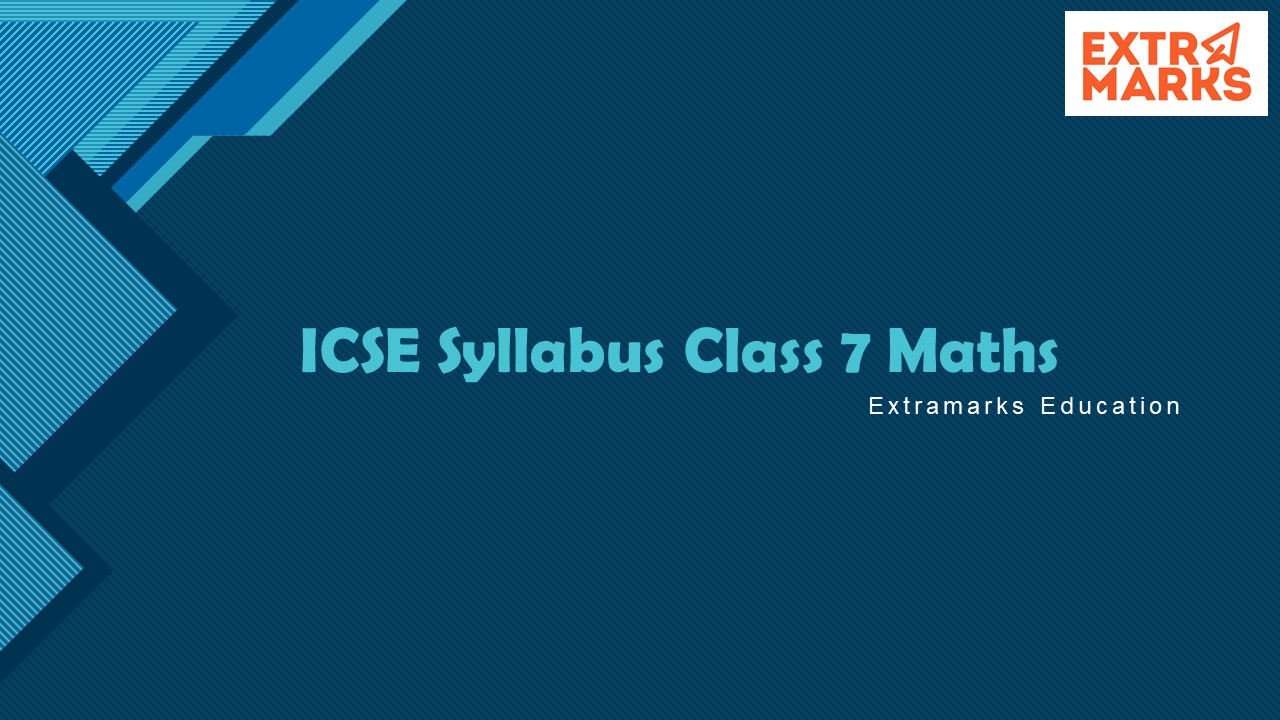ICSE Class 7 Mathematics Syllabus 2022-2023 - PowerPoint PPT Presentation
Title:
ICSE Class 7 Mathematics Syllabus 2022-2023
Description:
ICSE Class 7 Maths Syllabus as per CISCE guidelines is available. Sign up today & get detailed information about all the topics and chapters of Class 7 ICSE Maths that will help you prepare for your examinations. – PowerPoint PPT presentation
Number of Views:2
Title: ICSE Class 7 Mathematics Syllabus 2022-2023
1
ICSE Syllabus Class 7 Maths
- Extramarks Education
2
ICSE Class 7 Mathematics Syllabus 2022-2023
- Mathematics is one of the key subjects in our
daily lives. Learning math makes life easier by
enabling you to make wiser decisions in daily
life. Our lives are made in order, and chaos is
prevented by mathematics. The study of
mathematics fosters various talents, including
the capacity for abstract or spatial thought,
creativity, critical analysis, problem-solving,
and successful communication. As well as
encouraging logical thinking and mental rigour,
mathematics offers a powerful method for
developing mental discipline. Mathematical
expertise is also essential for comprehending the
material in other educational disciplines like
science, social studies, music, and art.
Mathematical concepts and methods are also
utilised to answer issues in science,
engineering, and economics, among other fields
and disciplines - ICSE Syllabus Class 7 Maths is a thorough
document that offers specific information about
the subject matter. The Extramarks team designed
the ICSE Class 7 Mathematics syllabus to assist
the students in understanding the subjects
presented in each chapter. It would assist
students in more effectively preparing for their
examinations. Mentioned below are ICSE board
Class 7 Mathematics syllabus.
3
Contents of ICSE Class 7 Mathematics Syllabus
- Unit 2. Ratio and Proportion
- Unit 1. Number System
- proportion and ratio (revision)
- Continuation, consolidation, and general
description of the unitary method - An introduction to percentage.
- Recognising percentages as fractions with a
denominator of 100. - converting decimals and fractions into
percentages and vice versa. - use concerning profit and loss (single
transaction only) - use with regard to simple interest (the time
period in complete years). - Time, distance, and speed.
- Division and multiplication of integers.
- Properties of operations on integers
Associativity, commutativity, the existence of
identity and inverse and distributivity. - Using integer operations to solve problems.
- Solution of integer word puzzles (all
operations). - Basics of rational numbers (with representation
on a number line) - Word problems on rational numbers (all
operations) - Representation of rational numbers in decimal
form. - Solving problems using operations on rational
numbers and decimal fractions - Fraction as an operator
- Reciprocal of a fraction
4
Contents of ICSE Class 7 Mathematics Syllabus
- Unit 4. Geometry
- Unit 3. Algebra
- Algebraic concepts include constants, variables,
coefficients, like and unlike expressions, etc. - Creation of algebraic expressions
- Performs operations (addition and subtraction)
exclusively on integral coefficient algebraic
formulas - Simple one-variable, two-operation linear
equations in problems of context. - Inequalities are simple inequalities in one
variable and their solutions.
- Recognising shapes
- Angles in pairs (linear, supplementary,
complementary, adjacent, vertically opposite) - Characteristics of parallel lines with
transversal ( corresponding, alternate, interior,
exterior angles) - Triangles properties
- The Angle Sum Property
- Exterior angle property
- The Pythagorean Theorem (Verification only)
- Symmetry
- Reflection symmetry
- The concept of rotational symmetry, observations
of 2-D object rotational symmetry. (90, 120,
180)
5
Thank You!!































